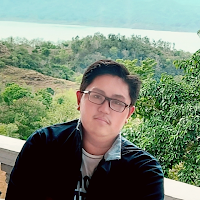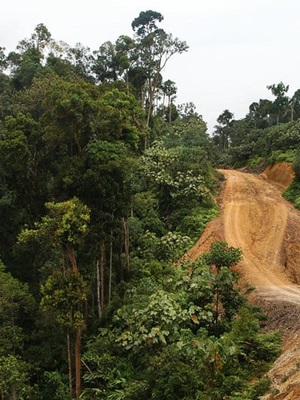Undeniably, today's fast-paced world has led us to reduce not only our time to think but also our time to appreciate the thinking process itself. The extent of this anti-intellectualism not only despises the idea of being quizzed but also brings about too much fascination with ready-made answers without thinking much about the questions. The Philippine society has a derisive word for those bugged by too much curiosity: Pilosopo (philosopher).
It comes as no surprise that social media are plagued now with hatred, disrespect, arrogance, and many of the canceling tactics used in order not to pay attention to the logic, argument, and intention behind a post. Truth is easily dismissed with the avalanche of comments and reactions, but at the expense of reasonable discourse, mutual respect, and mindful acceptance of ideas. This is all the more afforded by the convenience of posting and accessibility of technology, if not with the anonymity that only pours fuel on the fire of disagreements.
And I am speaking not only from the abstract numbers of surveys. I was once caught in the difficulty of making myself understandable to others in an extensive virtual warfare with almost nothing but irrelevant hurling of disdainful comments and unsound accusations.
After commenting on a news post on Facebook that the school calendar for basic education in public schools of the Philippines will gradually revert to its traditional start of classes, which usually begins in June of every year, I saw the inundation of harsh reactions to my critical sentiments towards the government. In that post, I strongly questioned the possible wisdom–or the lack of it–behind the transition of the school calendar because of its superficial rationale. While I see the move to make the students comfortable in their studies so as not to experience the scorching heat of the summer days during April and May, I still believe that the issue is more complex and is interrelated with other social problems. There is no denying that we should protect the students from dangerous heat, but it is also no secret that on rainy days, many students struggle with flash floods and several cancellations of classes when strong typhoons hit the archipelago.
Many people labeled me “bobo” (stupid). Some pictured me as a “pakialamero” (plain meddler) in public affairs. I was even called a paid opponent of the administration. But what struck me the most was that I was called a “pilosopo” a couple of times. Not because I think that it was an insult to me, nor because I was surprised that they had guessed one of my enthusiasms correctly, but because it has been used for several years as a pejorative term, even if it is supposed to be a crucial role for a noble discipline.
My intention was not merely to show off a skillset in mental gymnastics nor to be a know-it-all in this matter. After all, I admitted that I am not an expert in climate change or Physics. What I wanted was to spark a conversation to clarify political matters that are too important to be left to policymakers alone. For instance, I would like to know if educational facilities are ready for the rainy season. Or is it the case that we have become inured to the fact that students have to brave the floods and study while their feet are submerged in floodwater? Does this mean that we have to focus on alleviating heat-related health hazards without looking into the threats of dengue, leptospirosis, malaria, among others?
No less than the Intergovernmental Panel on Climate Change (IPCC) has studied that unless the world significantly reduces the rate of manmade carbon dioxide emissions and not merely stabilizes it, the rising temperatures will continue. With warmer oceans due to abnormal and long-lasting concentrations of greenhouse gases in the atmosphere, we are only waiting for typhoons of amplified intensity to land on our shores. The concepts of “evaporation” and “precipitation” will only remain as abstract as our illusions if we do not take our minds toward analytical thinking to figure out how the heat and torrential rains are connected and extremely devastating. Perhaps we need to revisit the 2022 Programme for International Assessment (PISA) in which Filipino students scored poorly in answering scientific questions requiring higher-order thinking skills in problem-solving rather than mere memorization and familiarity with concepts and ideas.
Clearly, not only do we need to build facilities to mitigate the effects of climate change, but also to address the sources of the problems, such as the immoderate burning of fossil fuels, massive destruction of forests, wanton consumerism, and citizens’ lack of sufficient understanding about the environment and sustainability.
While history shows us that academic culture was established by Plato, a philosopher who described himself as a lover of wisdom, our contemporary culture’s obsession with quick outcomes permeates the core of education, geared towards the fixation with authoritarian instructions, rote memorization, and, most of all, the repugnance towards thinking that only sees its tedious aspect. Rather than seeing philosophical skills as a boon for a thriving democracy so as to be troubled by problems that should profoundly disturb us, we remain on the surface of our delusions that everything is running smoothly as it should.
Without attending to the questions, society has come into the absurd habit of thinking that it merely focuses on so-called “answers.” The problem with ready-made answers is that these might not reasonably and adequately correspond to the questions and problems we face. By insisting on something long-established, consensus-seeking, and culture-conforming, our demand for critical thinking dwindles to a drain at the cost of autonomous understanding. Becoming knee-jerk reactionary, or perhaps intentionally neglecting the vital re-evaluation of our thoughts, pushes us to a culture of canceling each other mindlessly instead of walking the path of dialogue together.
Sadly, Philosophy, a discipline that poses problems inasmuch as it gives answers, is deprived of its social import. The intellectual humility behind the uncovering of questions is interpreted as a show of conceit, while the baseless accusations of demolition jobs against the government, the proliferation of fake information, and character assassination through memes remain the dominant predilections of those who do not want to be enlightened.
More than ever, it is relevant to appreciate what Paulo Freire, a Brazilian thinker, sees as the importance of treating every moment of our lives as a learning process, for such a precious moment is not only confined to classrooms. To question is a very humanizing act, as it gives us not only the capacity to understand but also to change the way things are to the way things should be. That is, we are not simply to submit “fatalistically” to what is given to us but are challenged to find a meaningful existence.
Posted 15/08/2025

















